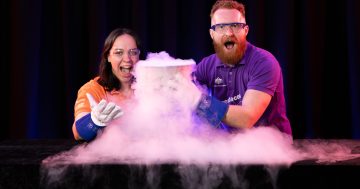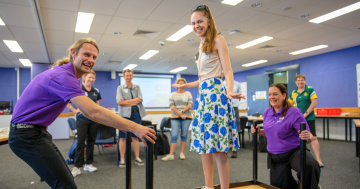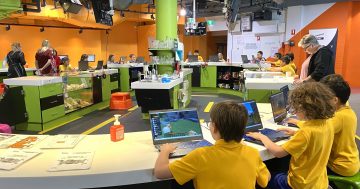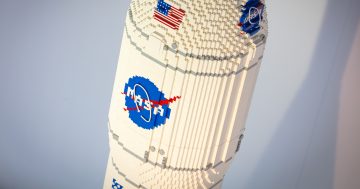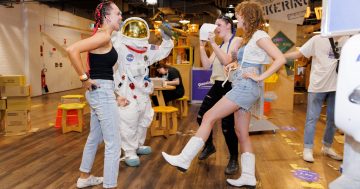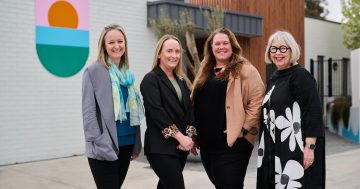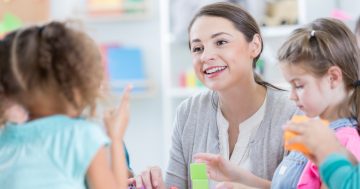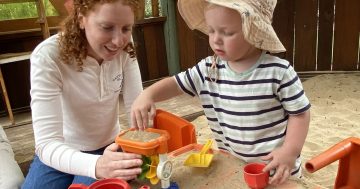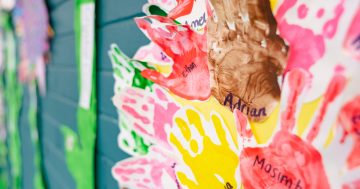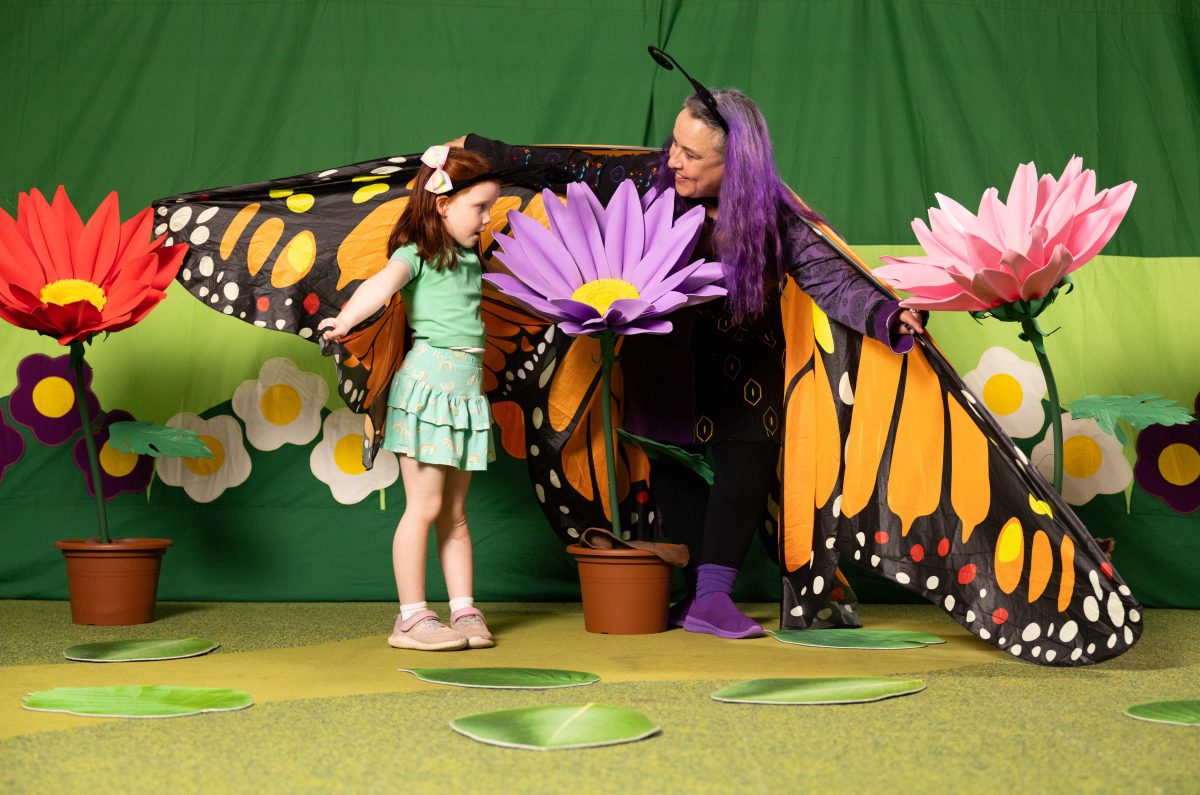
Questacon uses everything from shows to workshops, exhibitions to activities to immerse children in a STEM environment, but parents have all the tools they need at their fingertips to lay the groundwork. Photo: Questacon.
Getting the kids to sort the cutlery drawer is not rocket science, but it might lead to it.
Everyday parents doing everyday things are unwittingly engaging their children in science lessons that, with a few minor tweaks, could lay the foundations for a lifelong passion for STEM, according to one expert.
In her role as Early Learning Coordinator at Questacon, Belinda Jane Anyos has cultivated a sixth sense for the “science all around us” and how adults can help children tap into their innate curiosity to explore it.
She says it doesn’t take much to ignite the spark of a young child’s curiosity.
“Many people think science has to be complicated, but all science starts with an observation, the kind we make all the time,” she says.
“The simple act of sharing those observations with our children, or encouraging them to articulate theirs, is the beginning of the journey.
“Next time you’re doing something – anything – try asking your child open-ended questions like, ‘What do you see? What do you hear? What do you notice?’ It encourages them to explore their observations of the world around them, which sparks curiosity and conversation.”
Belinda says when parents look at their day through a scientific lens, everything – from flora and fauna encountered while gardening to the rising of a cake in the oven – can become rich source materials for early exploration of chemistry, physics and biology principles.
The science principles embedded in these experiences are the kinds explored in Questacon’s interactive Science Time workshops for early learners, which cover a broad range of topics from light and colour to dinosaurs and even inside the human body.
Each session starts with a question, which children and their caregivers will then work on together, using hands-on experiments, activities and crafts to investigate. The session finishes with a demonstration and an activity sheet so they can continue their STEM journey at home.
“We try to light the spark of curiosity in children but also give their carers the confidence and resources to fan that flame at home,” Belinda says.
“That’s incredibly important because parents are a child’s first teacher.”
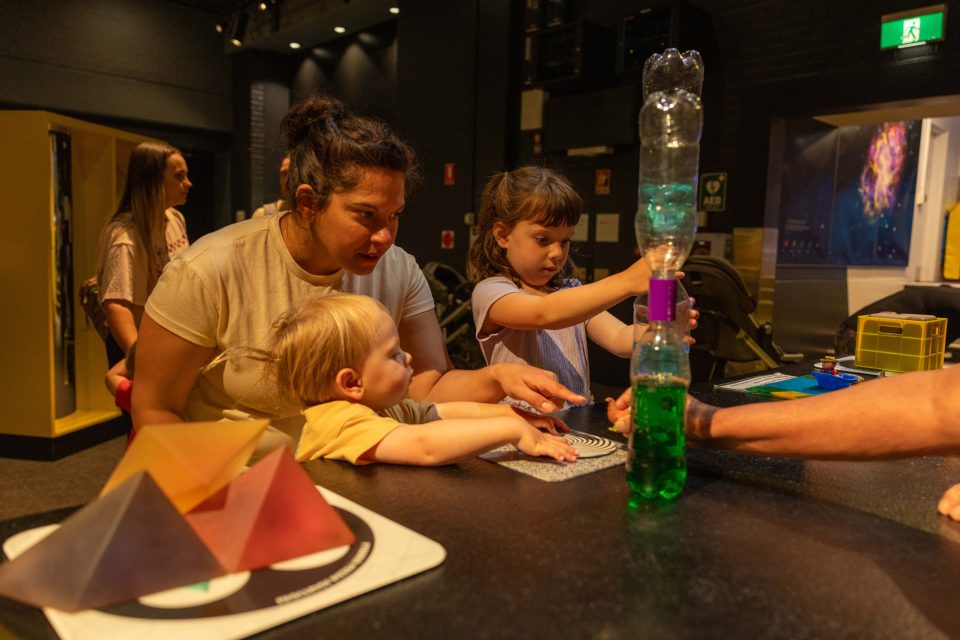
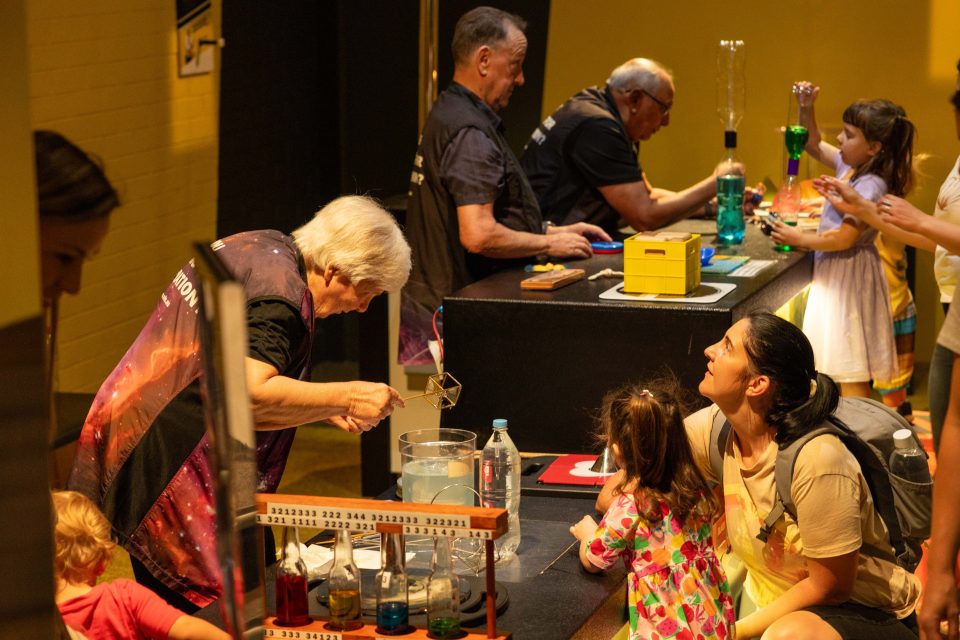
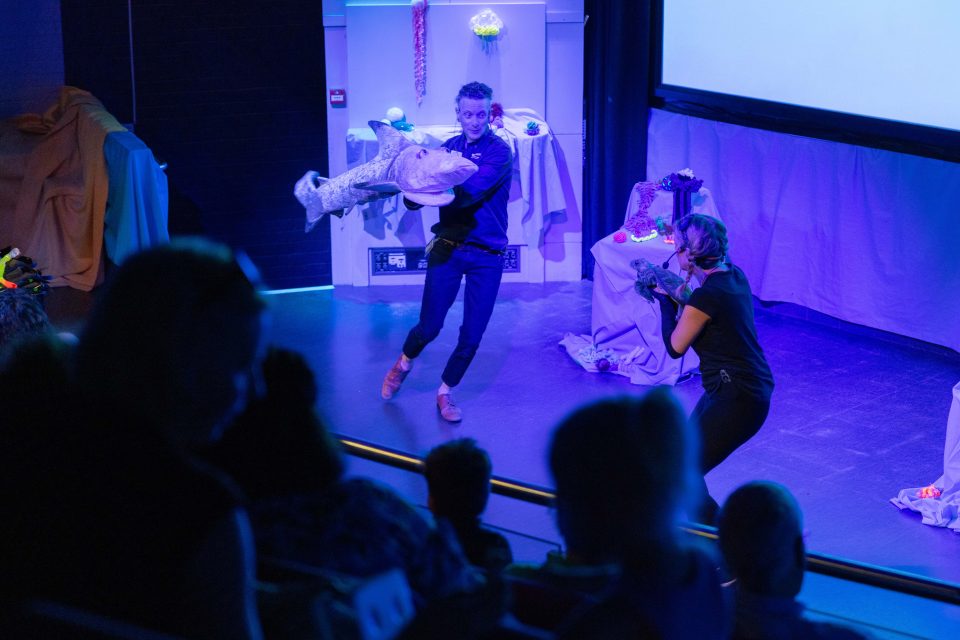
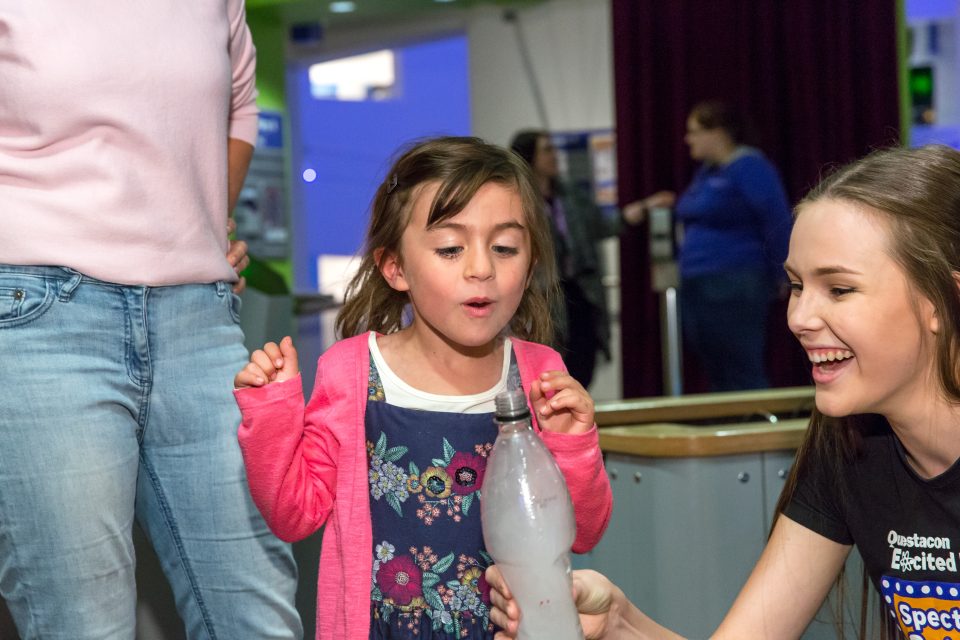
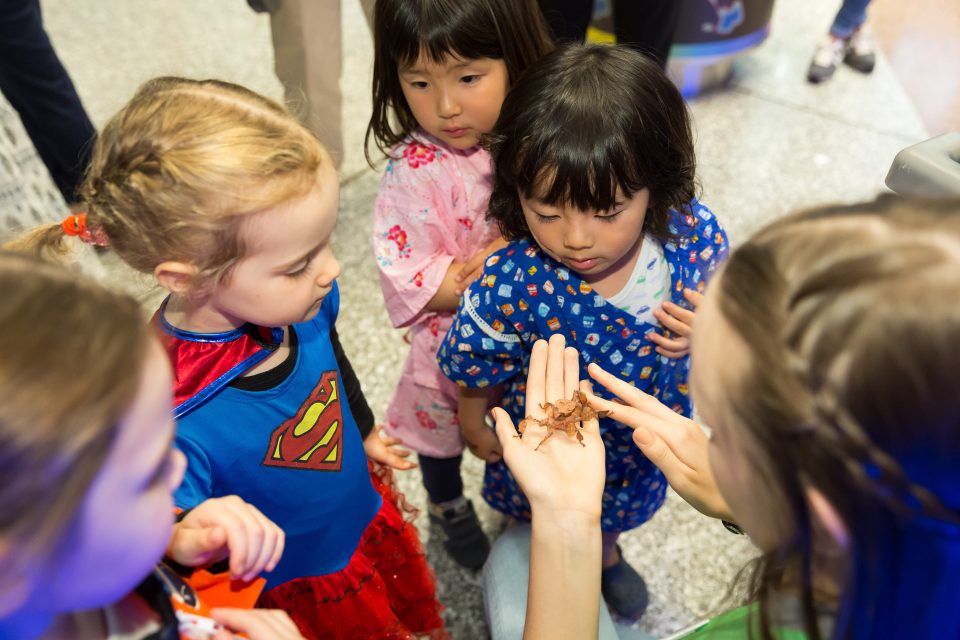
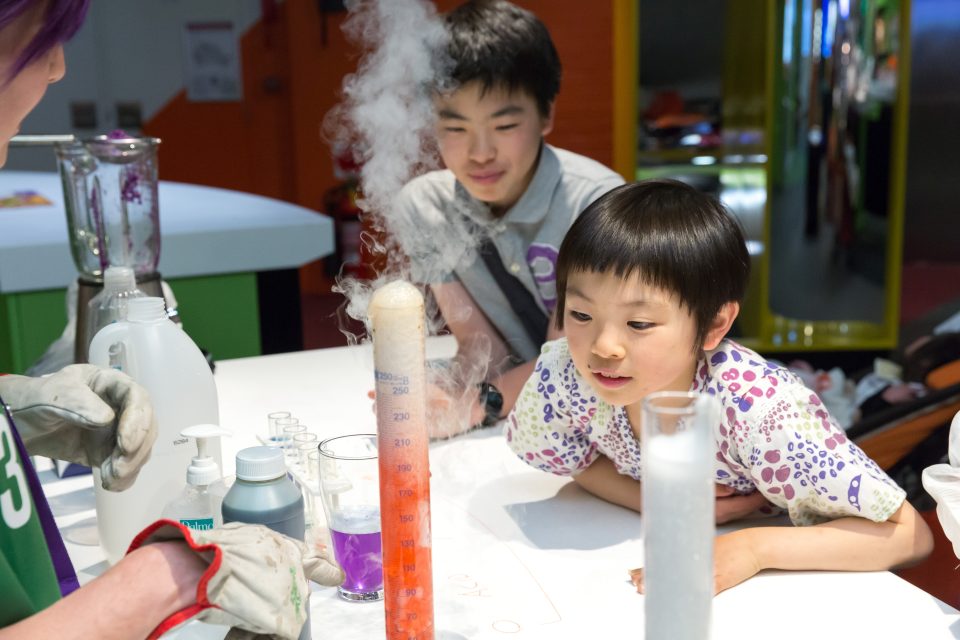
But while you’re mining these everyday activities for their hidden lessons, Belinda advises incorporating “science words”.
“If the first time a child hears the word ‘experiment’ is when they get to school, they might think, ‘I don’t know what that is, it mustn’t be for me’,” she says.
“Next time your little one is in the bath, ask them what they think would happen if you dropped different objects – a sponge, a toy – into the bath, and follow with words like, ‘Let’s experiment, do you have a prediction or a theory?’ By increasing their science literacy before they hit school, they’ll feel confident and engaged when it comes up because, in their minds, they’re already ‘science doers’.
“That’s the beauty: parents do these things all the time with their kids, they just might not recognise it. When we form a habit of looking at things through a scientific lens, we see it everywhere.”
Belinda says research supports the idea that with early exposure to science principles, children take “science ways of thinking” to school and are more likely to pursue STEM occupations.
Outside of the experiences embedded in everyday life, parents can turn to Questacon for a wide range of immersive STEM experiences developed specifically for early childhood.
“Our big aim for early learners at Questacon is to help them develop and build a STEM identity, succeed in STEM, and begin to see themselves as people who can do science,” she says.
The offering includes the ‘Mini Q’ gallery, where children aged zero to six years old are surrounded by opportunities to learn through play – an incredibly effective pedagogy for this age group.
Here, everything from Block Play to Water Play teaches kids basic engineering and mathematics principles like percentages, shapes, cause and effect, balance, problem-solving and gravity in a way they’re naturally inclined to engage with.
Aside from the workshops, a range of shows incorporating everything from puppetry to roleplay have been designed as powerful and memorable vehicles by which to impart STEM learnings in young audiences.
Questacon is open daily from 9 am to 5 pm and is located at King Edward Terrace, Parkes.












